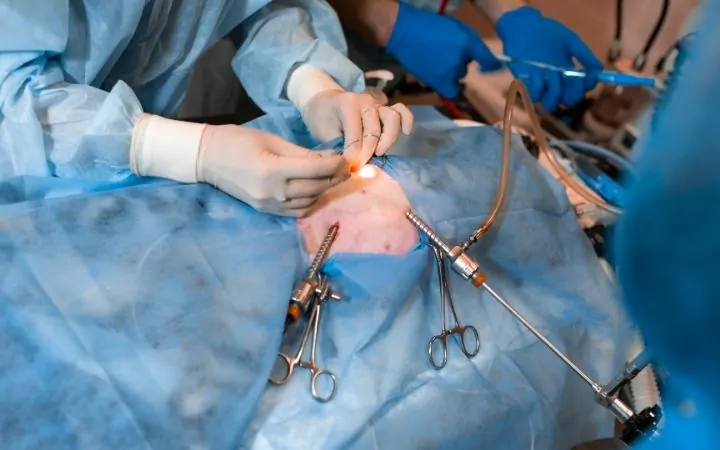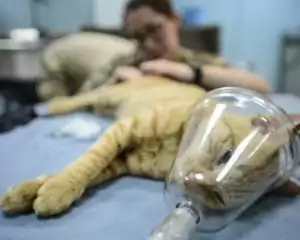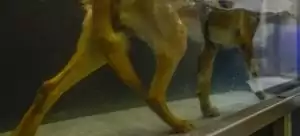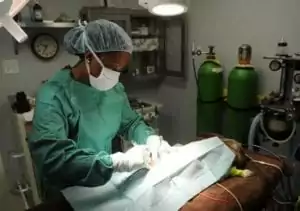Did you know there are many different types of veterinary specialists? Additional training and educational course for a DVM gives them an opportunity to specialize in a certain field of veterinary specialties.

After the training course, the veterinary doctor has to pass an examination process evaluating his expertise in the field. If the exam is successfully passed then you become a veterinary specialist.
What are the Different Types of Veterinary Specialists?
Veterinary specialists are more and more popular and a rising trend. With the progress of scientific research in the field of veterinary medicine, new machines, and technological advancements, specializing in an area makes it easier both for the owners and the doctors.
It means that now that there is a lot more material to learn, it is better to be an expert in one or two scientific areas rather than being average in all of them. Just like in human medicine, veterinarians can refer complicated cases to colleagues that will inject more expertise in solving the problem.
Specialists contribute to expanding the average lifespan of animals. It’s very important that the owner, veterinarian, and veterinary specialist have fair and frequent mutual communication and understanding. Aside from companion animals, there is a lot more to specialization and specialty fields, which are listed below.
The American Board of Veterinary Specialties (ABVS) recognizes 41 specialties that are taught at 22 recognized organizations.
List of Veterinary Specialties

Anesthesia: A necessity and pre-procedure to almost all invasive surgical and non-surgical procedures. Anesthesia is also used for restraining and immobilizing wild, aggressive, and anxious animals.
Animal welfare: The well-being and welfare of animals.
Behavior: Additional training for veterinarians to better understand the ‘language of the animal world’.
Dentistry: Specially trained veterinarians for the health of animal teeth and oral cavity.
Dermatology: Specialty for skin problems in animals. A very important field that deals with simple and serious underlying health problems reflected on the skin.
Emergency and Critical Care: Specialists for animal intensive care. They are crucial for treating terminal cases.
Internal Medicine: Sub-disciplines include cardiology (heart diseases), neurology (diseases of the central and peripheral nervous system), and oncology (tumors).

Sports Medicine and Rehabilitation: Specialty that helps injured and traumatized animals get back to normal functioning.
Microbiology: Special training and knowledge of bacteria, fungi, and viruses.
Nutrition: Proper and healthy feeding of animals. It is a very important specialty both for companion and farm animal animals.
Ophthalmology: Special training in eye diseases.
Pathology: Veterinarians that specialize in the pathological changes in the body caused by various diseases. They also perform autopsies.
Pharmacology: The effect of drugs on animals.
Poultry: Special education in poultry health and production management.
Preventive Medicine: Special knowledge of how to prevent occurring diseases and how they are spread.
Radiology: Special diagnostic training in performing and reading the ultrasound, CT (computed tomography), x-ray, and MRI (magnetic resonance).
Laboratory Animal Medicine: Specialists that take care of laboratory animals.

Surgery: The most popular type of specialization and probably the most important of all. Subcategories include small and large animals. A specialized surgeon must choose between orthopedics and soft-tissue fields. Specializing in one of them doesn’t necessarily stop you from performing the other type.
Theriogenology: Animal reproduction specialty.
Toxicology: Field of specialization dealing with the harmful effect of different substances on the body.
Veterinary Practitioners: Great for veterinarians that work in clinical practice. Depending on the focus animals, the vet can choose between the various type of veterinary practitioner specialties (exotic, dairy, companion animals, etc.)
Zoological Medicine: Specialization for aquatic, wildlife, and zoo collection animals.
Becoming a specialist certified by the ABVS can be done by an educational course in vet colleges or in private hospitals for specialization.
The process of becoming a super-vet usually lasts a minimum of two years. Choosing the right direction for you can be difficult and most commonly it is upon animal species you want to work with.
The demands for specialties and salaries on the labor market are different, so if you are money-driven check what is most valued. If not, imagine yourself while performing any of these jobs and see what feels right.
If you want to know more about veterinary medicine, read our blog.
